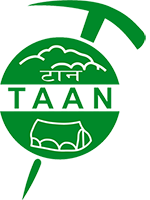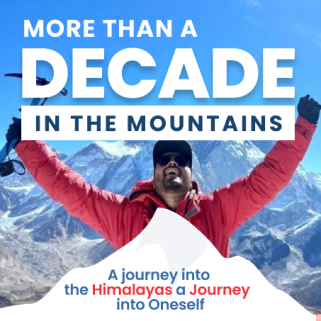
Tilicho Lake Trek: A Complete Guide

Tilicho Lake Trek: A Complete Guide
swotah travel
34371
25, 08 2024
Real travellers do not live still - they lead a nomadic life throughout their lives. It's not just because of their travel business; they're itching for an adventure. Travelling is the only solution if you want to explore new places and see amazing things. Trekking is one of the means to get you adventure and provide you with the thrill of the world's beauty. And the world offers you thousands of destinations to grab the opportunity. Out of them, we've found the perfect destination, the Tilicho Lake trek.
This trekking guide will take you on a wild journey to one of the most beautiful lakes in the world. With stunning landscapes and plenty of challenges, this trek is perfect for anyone looking for an adventure.
So what are you waiting for? Let's get started!
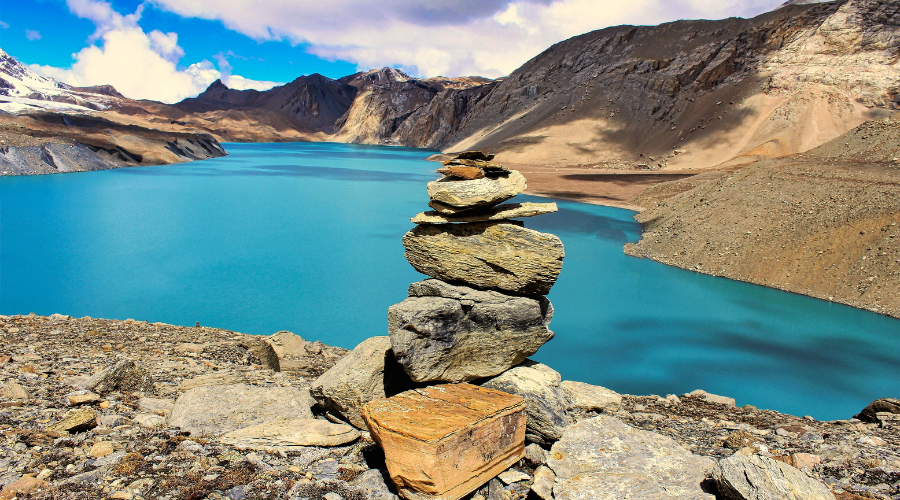
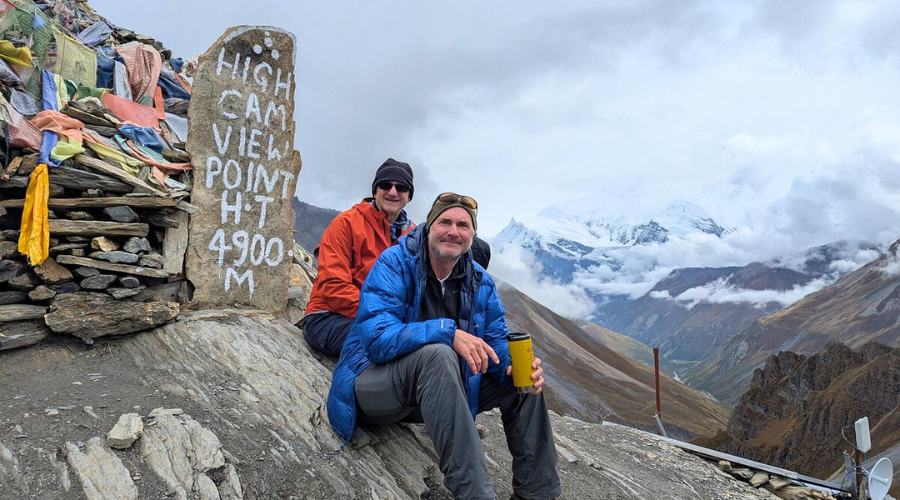
Highlights of Tilicho Lake Trek
- Visit Tilicho Lake, one of the highest lakes in the world, situated at an altitude of 4,919 meters.
- Enjoy breathtaking views of the Annapurna massif, Dhaulagiri, Manaslu, and other Himalayan giants.
- Traverse through varied landscapes, including lush forests, arid mountain deserts, and rocky trails.
- Experience the rich culture of the local communities, including Gurung, Thakali, and Manangi ethnic groups.
- Tackle the challenge of crossing the Thorong La Pass, one of the highest and most famous passes in the world.
- Visit ancient Buddhist monasteries and learn about the spiritual practices of the local communities.
- Trek on less crowded trails that provide a more solitary and serene hiking experience compared to other parts of the Annapurna region.
- Experience clear night skies perfect for stargazing, especially from the higher campsites.
Profile Of The Trek
|
Name |
Tilicho Lake |
|
District |
Manang |
|
Development Region |
Western Development Region |
|
Province |
Gandaki |
|
District Headquarters |
Chame |
|
Distance |
166 KM from Kathmandu, 7 hrs walk from Khangsar, 55 Km aerial distance from Pokhara |
|
Topography |
High-Altitude Lake |
|
Altitude |
Cordyceps Sinensis, Picrorhiza Scrohpulariflora, Dactylorhizahatagirea, Spikenard, etc. |
|
Latitude |
28° 40' to 29° 43' North |
|
Longitude |
83' 50° to 93' 53° |
|
Length |
3.9 Km |
|
Breadth |
1.6 Km |
|
Area |
4.8 sq. Km |
|
Volume |
155m Liter |
|
Water quality |
Pure fresh |
|
Source |
Tilicho, Mesokanto and Idam-Phra Peaks |
|
Mountains |
Tilicho, Nilgiri range, Muktinath Himal, Idam-Phra, Pushen Dada and Annapurna Range |
|
Flora |
Lonicera Spinosa, Oxygraphis, Alpine Buttercup, Alpine Austragulas, Caragina, Prinirose, Primulagentian, Edelweiss etc |
|
Fauna |
Snow Leopard and Blue Sheep |
|
Avie Fauna |
Himalayan Snow Cock, Alpine Chough, Demoiselle Crane (Nigatory) |
|
Herbs |
Glacier |
|
Aquatic Organism |
Not recorded yet |
|
Climate |
Alpine |
|
Climate Zone |
Rain Shadow |
|
Vegetation |
Alpine |
|
Glaciar |
Tilicho Glaciar |
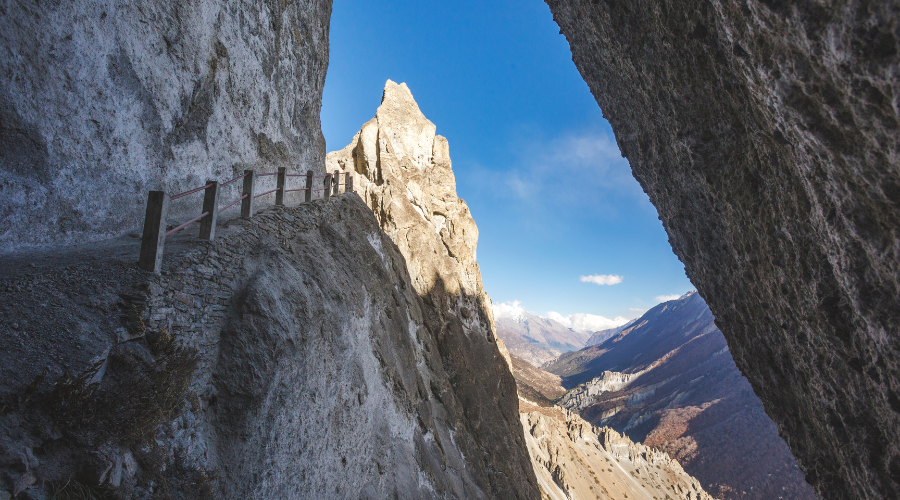
Overview of the Tilicho Lake Trek
The Tilicho Lake Trek is a hiking expedition that will take you to one of the highest lakes in the world. At 4,919 meters above sea level, Tilicho Lake is a sight to behold. The trekking route also offers stunning views of the Annapurna and Dhaulagiri ranges.
The trek begins at Besisahar, a town in Lamjung. After an initial ascent, your first destination is Tal (1700 m), and Chame is the next. From there, you will hike to Pisang, at 3200 meters altitude. You will then trek to Manang at 3540 meters and kick-off to Khangsar at 3756 meters. During your trip, you will pass through the beautiful villages of Ngawal, Munchi, and Braka. Similarly, the heart-melting views of Mount Annapurna, Gangapurna, Pisang Peak, and Tilicho Peak give you the most thrilling experience.
From Khangsar, your next stop is Tilicho Base Camp and Tilicho Lake. Tilicho Base Camp is the home to yaks and pasturelands - you can reach the camp after crossing the Khangsar River. Tilicho Lake sits at an altitude of 4919m, and its surrounding sloppy landscapes will be risky but adventurous simultaneously.
From there, you will continue to ascend until you reach the summit of Thorong La Pass. Then you make your way to Muktinath, a sacred place for Hindu and Buddhist people. From Muktinath, you will trek to your last destination, Jomsom, from where you will fly back to Pokhara.
The trekking route is 53 kilometers long and usually takes around 12 to 14 days to complete.
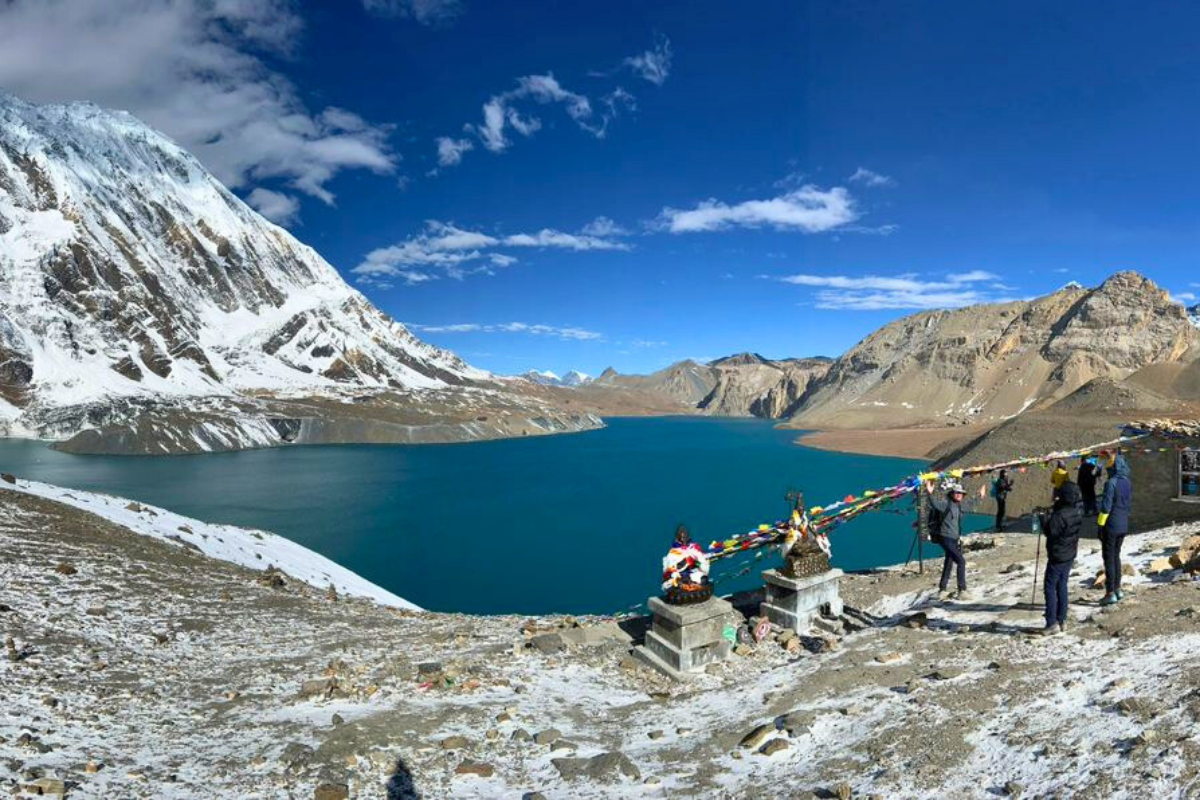
Detail Itinerary for Tilicho Lake Trek
Day 1: Besisahar to Tal
The journey will begin in the early morning in Kathmandu (the capital of Nepal). There, we will take a bus and reach Besisahar after 6 to 7 hours. Along the bus ride, you will see some amazing scenery and cross beautiful places such as Boudhanath. From Besisahar, we will go on a rough road via a jeep to reach Bulbule. From Bulbule, we will start our trek and reach the Tal village, where we will rest for the day.
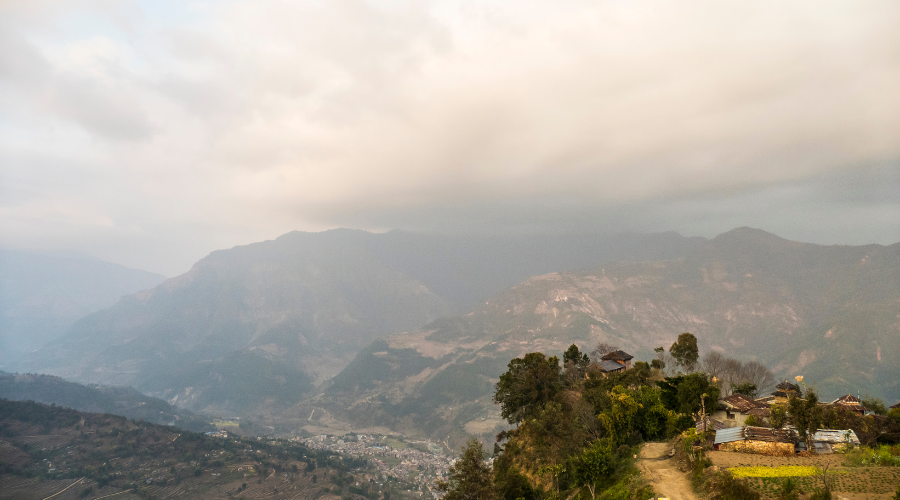
Day 2: Tal to Chame
The next day, we will start our trek from Tal and reach the district headquarters of the province of Gandaki, Chame. Along the trek to Chame, we will be in the Annapurna region and will be able to see the beautiful Annapurna mountains, cross the Marsyangdi River, and visit other beautiful villages. Chame is also the place to buy all the necessary items you may need to buy or have repaired.
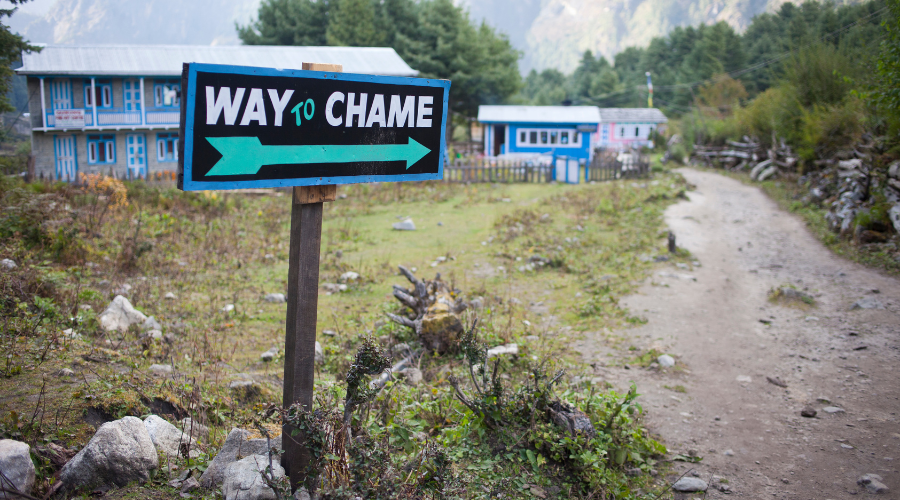
Day 3: Chame to Pisang
From Chame, we will trek through lush green pine forests and walk alongside the Marsyangdi river. We will see one of the biggest Apple farms in Nepal. After a few hours, we will reach Dhikur Pokhari(3060m). From Dhikur Pokhari, we will cross a Suspension Bridge and reach a village. There, we will rest for some time and then trek to Upper Pisang.'
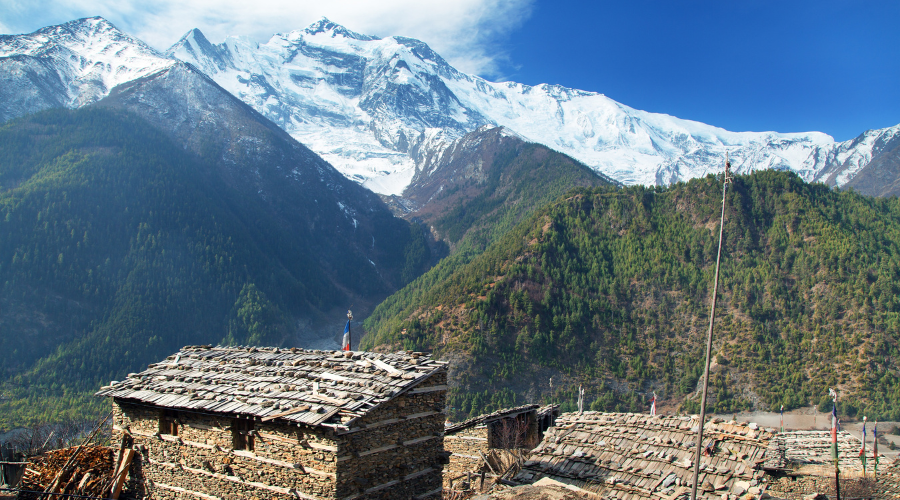
Day 4: Trek from Pisang to Manang
There are two trekking routes from Pisang to reach Manang. One way is to go through Ghyaru, where there are more climbs, and another way is through the southern route, which has less climbing than the Ghyaru route. Both routes will end up at the same place called Mungji. Along the way, we will be able to see different snow peaks, such as Tilicho Peak, Annapurna Peak, and many others. We will also go through beautiful Tibetan villages, monasteries, and beautiful landscapes. Trekking through all these places after 6-7 hours, we will reach our destination for the day in Manang.
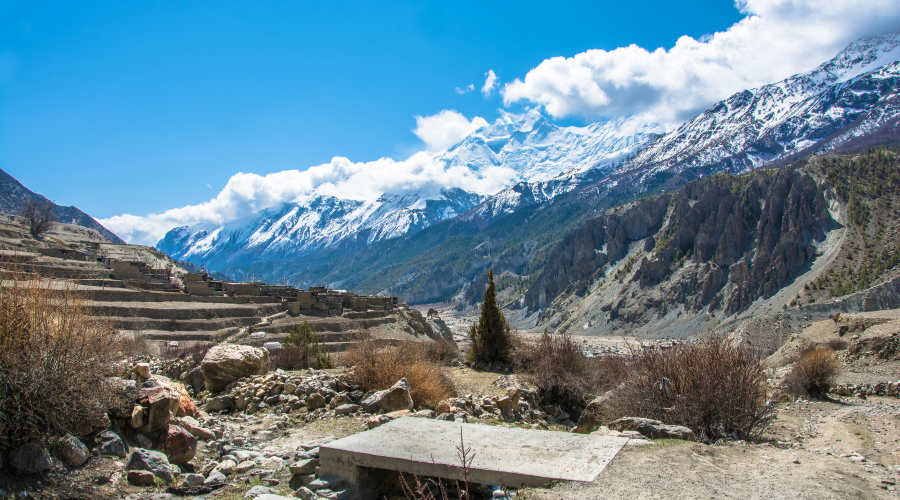
Day 5: Acclimatization Day
Today, we will stay in Manang to acclimate. We will do a short hike around the Manang district, buy necessary things, and rest the upcoming day.
Day 6: Manang to Khangsar Trek
Full of energy, we will now begin our trek to Khangsar. We will trek through the alpine forest surrounded by snow-peaked mountains and then cross the Kangsar River to reach the Khangsar village.
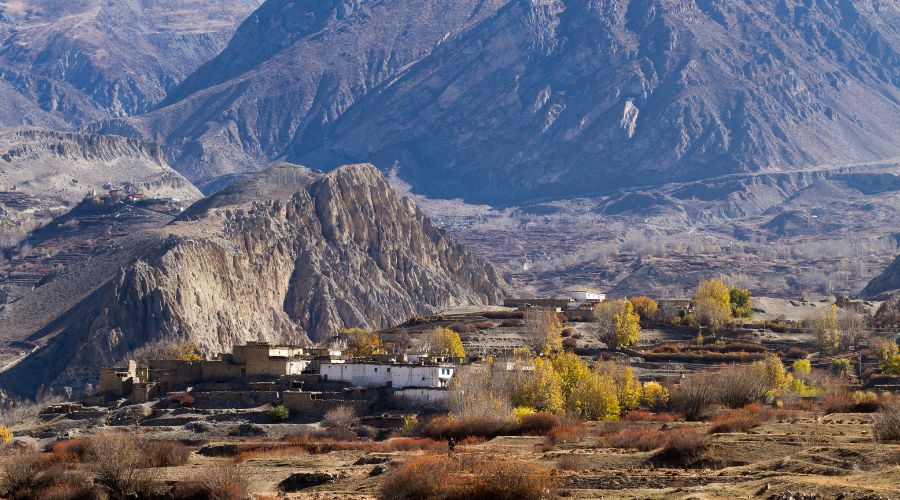
Day 7: Trek from Khangsar to Tilicho Base Camp
Leaving the Khangsar village, we will begin our trek. Along the trek, we will see Yak grazing and blue sheep. The first part of the trek is quite a climb, so we will trek slowly and reach our destination at Tilicho Base Camp. We will spend the night in a Tent.
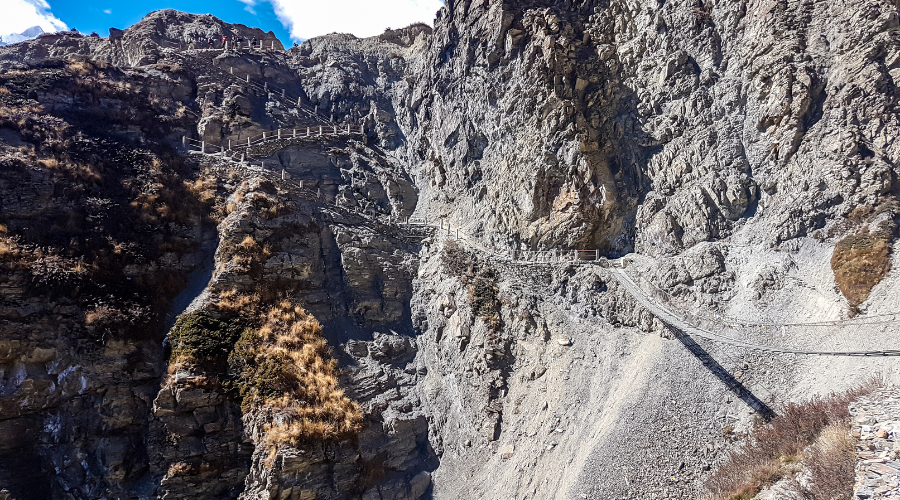
Day 8: Tilicho Base Camp to Tilicho Lake and Back to Tilicho Base Camp
Today is the day when we will reach our destination, Tilicho Lake. It's a steep and hard climb with snow all year round. Along the way, we will be able to see mountains such as Mount Tarkeghyang and Gangapurna. So after a hard climb, we will reach the highest lake in the world, Tilicho Lake, at an altitude of 4919m. After admiring the beautiful lake and its surrounding view, we will return to the Tilicho Base Camp and rest. Overnight on the tent.
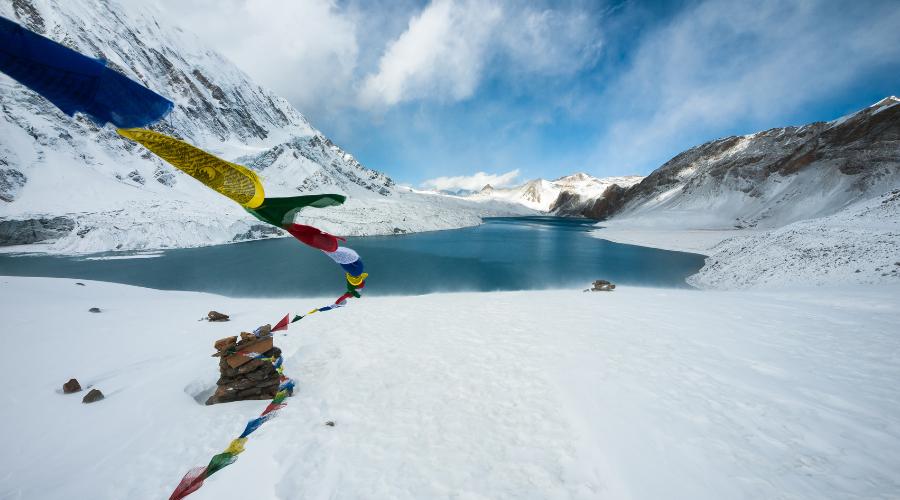
Day 9: Tilicho Base Camp to Khangsar
Now it's time to return. We will now trek our way back to Khangsar from the same way we came through and then reach Khangsar.
Day 10: Khangsar to Yak Kharka
From Khangsar we will trek to Yak Kharka. Yak Kharka is a small settlement located at an altitude of 4,110 meters (13,484 feet). It is known for its stunning views of the surrounding mountains, including Annapurna II, Annapurna IV, Gangapurna, and Tilicho Peak. While trekking, we will see monasteries and yak grazing, cross the Thorong River, and reach Yak Kharka.
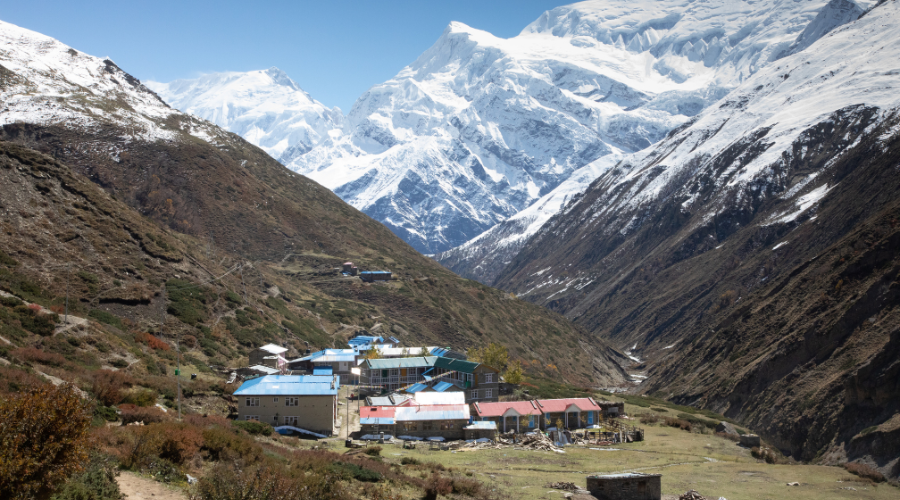
Day 11: Yak Kharka to Thorong High Camp
Leaving the Yak Kharka, ascending through Ledar, descending to the trail, and reaching Thorong Phedi, Along the trail, we will get to see small tea houses where we can rest and have a cup of tea. We will also get a close-up view of Thorong Peak and a beautiful landscape. Overnight stay on Thorong High Camp.
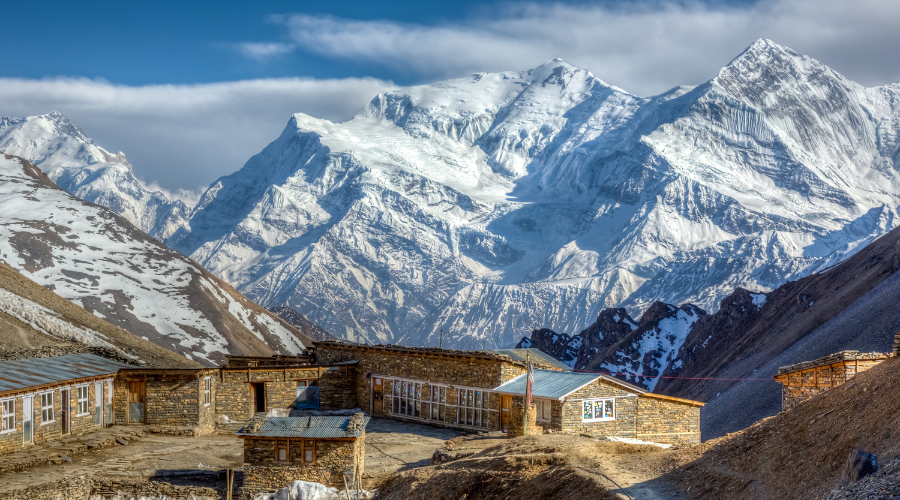
Day 12: Trek to Muktinath (Via Thorang La Pass)
Crossing through one of Nepal's highest passes, the 'Thorong La Pass,' which lies at an altitude of 5416m, we will reach Muktinath, also known as the Mukti Kshetra, which means salvation arena. This is going to be a tough trek, so we have to make sure that we trek slowly, rest along the way, and drink plenty of water.
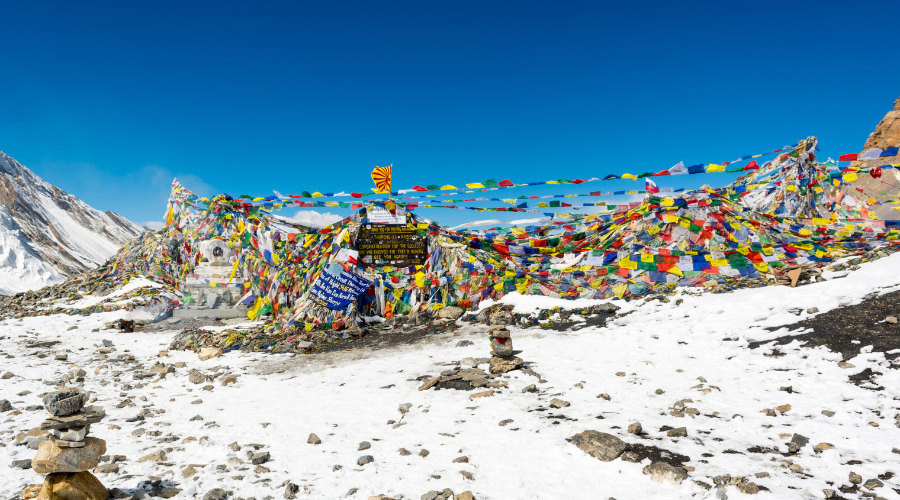
Day 13: Trek to Jomsom
First, we will visit the Muktinath temple, have some breakfast, and start our trek to Jomsom. Along the Kali Gandaki river, we will walk with a beautiful view of Mt Dhaulagiri villages, cross many suspension bridges, and then reach the Jomsom district. This is the end of the trek.
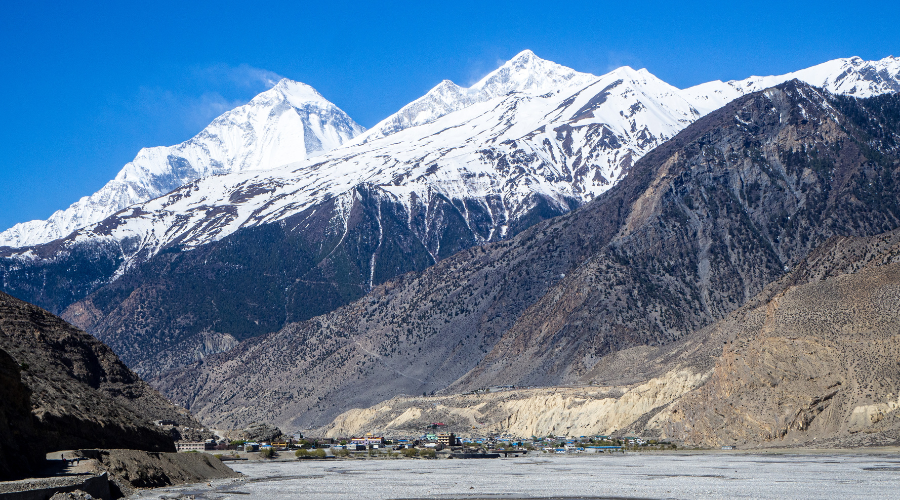
Day 14: Jomsom to Pokhara
Now that our trek has ended, we will go to Pokhara. There are two ways to reach Pokhara: by flight or bus. It's better to take a flight because the Bus journey is rough and super long. After reaching Pokhara, we will stay there, and the next day, we will go to Kathmandu, where you can take a flight or a bus, depending on your budget or time. From Kathmandu, you will then depart for your home country.
Preparing for the Tilicho Lake Trek
Now that you have all the necessary information, it's time to start preparing for your trek. While there's no one right way to do this, here are a few tips to help you get started:
First, ensure you're physically and mentally prepared for the challenge ahead. Trekking at high altitudes can be strenuous, especially if you need to get used to it. Start by doing some hikes or walks in the weeks leading up to your trek. This will help your body adjust to the altitude and make the journey easier.
Secondly, pack appropriately. You'll need plenty of clothes for both warm and cold weather, as well as sturdy shoes that can handle a variety of terrain. Don't forget sunscreen, insect repellent, and a hat to protect you from the sun and bugs. And remember to pack your sense of adventure!
Finally, familiarize yourself with the route before you go. There's nothing worse than getting lost in the middle of nowhere. Study the map and make sure you know where you're going at all times.
Essential Gear for the Tilicho Lake Trek
You'll need a few pieces of essential gear for the Tilicho Lake Trek. Make sure you have a good backpack, sleeping bags, sturdy hiking shoes, water and snacks, and rain gear.
A good backpack is vital-you'll want something roomy enough to fit all your gear but not too heavy that it becomes a burden. Make sure your shoes are well-worn and waterproof- the terrain can be unpredictable, and you don't want wet feet for the entire trek. And finally, don't forget snacks and water-you'll need the energy to get to the top and want to stay hydrated along the way.
It's also important to pack wisely. Leave room in your backpack for souvenirs, and be mindful of your weight so you don't tire yourself out before you even start the trek.
Map of Tilicho Lake Trek
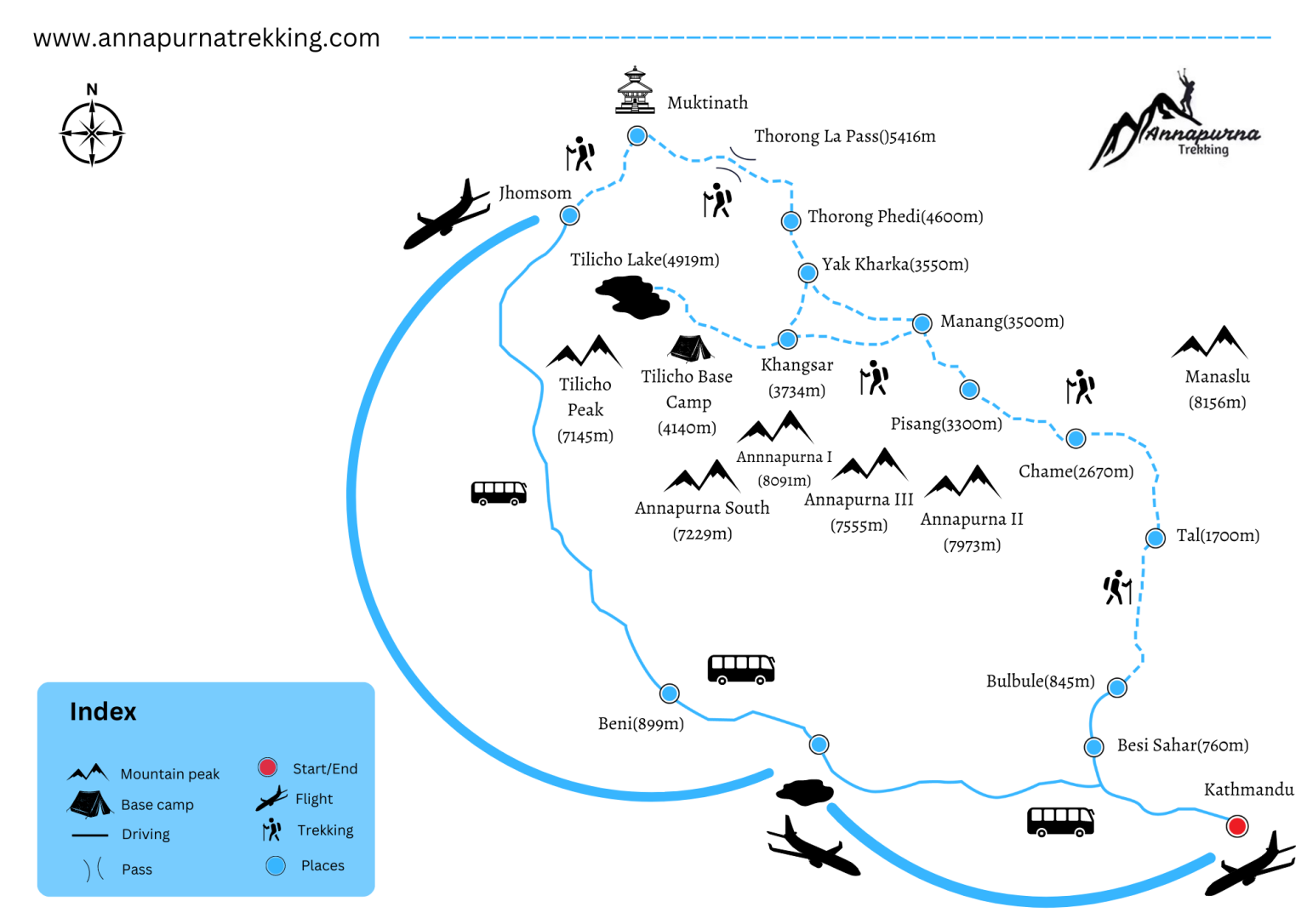
Photo: Tilicho Lake Trek Map
Pit Stops and Highlights on the Tilicho Lake Trek
There are plenty of highlights and pit stops along the way to Tilicho Lake. Here are a few of the most popular ones:
The hot springs at Jomsom
These natural hot springs are the perfect place to relax your muscles after a long day of trekking. The water is said to have healing properties, so don't hesitate to take a dip!
Muktinath Temple
This holy temple is a popular stop for Hindu and Buddhist pilgrims. It's situated at an altitude of 3,800 meters (12,500 feet), so you'll feel like you're on top of the world!
Thorung La Pass
This is the highest point on the Annapurna Circuit Trek, and at an altitude of 5,416 meters (17,769 feet), it's not for the faint of heart. But trust me, the views from the top are 100% worth it.
Permit required for Trekking in Tilicho Lake
Just like the Annapurna circuit permit, two permits are needed for trekking in Tilicho Lake. They are a TIMS (Trekker Information Management System) card and an ACA (Annapurna Conservation Area) permit. The TIMS card will cost around 2000 NRS, and the ACA will cost around 3000 NRS.
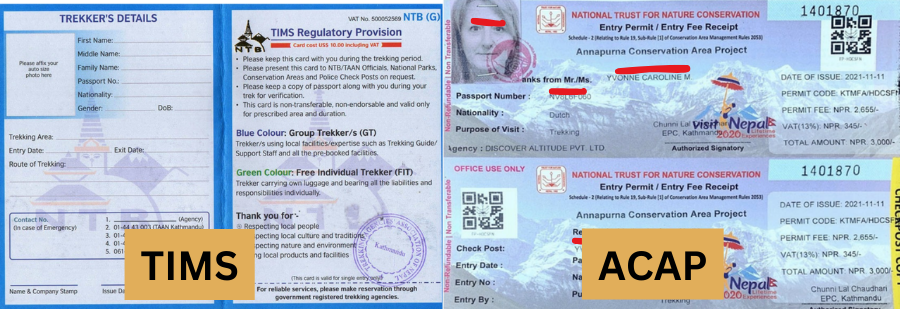
Cost Of Trekking In Tilicho Lake
All the costs that you may end up with while trekking in Tilicho lake are given below:
Flight to Nepal
Prices for flights to Nepal can vary depending on factors such as the time of year, the airline, and how far in advance you book. It is generally a good idea to book your flights as far in advance as possible to get the best price. You may also be able to find discounts or special deals on flights by looking for promotional offers or by being flexible with your travel dates. For reference, a flight ticket from the USA to Nepal generally costs around $2000 to $3000.
Visa
The cost of a Nepal visa depends on the type of visa you are applying for and how long you plan to stay in the country.
Tourist visas are available for visitors who are coming to Nepal for tourism purposes. The cost of a single-entry tourist visa is $30 for a 15-day stay, $50 for a 30-day stay, and $125 for a 90-day stay.
It is important to note that the visa fees are subject to change, so you should check with the Embassy of Nepal or the Department of Immigration in Nepal for the most up-to-date information.
Gear and Equipment
The cost of gear and equipment for trekking in Nepal can vary significantly depending on a number of factors, including the type of trek you are planning to do, the time of year, and the quality and brand of the gear you are purchasing.
For trekking in Tilicho Lake, all the gear and equipment, assuming you don't have any, can cost around $300 to $500.
You can often rent or hire gear and equipment in Nepal, which can be a cost-effective option if you do not want to purchase everything yourself. Renting or hiring gear and equipment can also be a good option if you are only planning to do a short trek or if you are not sure if you will be doing more trekking in the future.
The cost of renting or hiring gear and equipment in Nepal can vary, but you can expect to pay anywhere from a few hundred to a few thousand rupees per day, depending on the type of gear you are renting and the length of the rental period.
In general, it is a good idea to do some research and compare prices before purchasing or renting gear and equipment for your trek in Nepal. You may also be able to find discounts or special deals by shopping around or by looking for promotional offers.
Food and water
Food and water while trekking in Tilicho Lake can cost you around $10 to $20 per day, and as it is a 14-day trek, it costs around $150-$200 in total.
Accommodation
Just like in every other trek of Nepal, such as Annapurna trekking, assuming you will eat the food in the accommodation you will be staying at. The price of accommodation can be anywhere from $3 to $10 per day. In total, the whole trek will cost around $50.
Transportation
Vehicle
From Kathmandu to Besi Sahar, the bus price will be around $20 to $30, and the jeep price to Bulbule will be around $10. If you were to take a bus from Jomsom to Pokhara instead of taking a flight, it would cost you around $12-$20.
Flight
Prices for flights can vary depending on the time of year, demand, and availability. You can check with individual airlines or online travel agencies to find the best price for your specific travel dates. Generally, the flight ticket from Kathmandu to Pokhara is $30 to $50, and the price from Jomsom to Pokhara is anywhere from $100 to $150.
Guide and Porter
The job of a guide or Porter is to guide the trekker, help them, give information about the terrain, mountains, and places, and carry their bag pack. If you want, you can trek without them, too. But generally, it is advisable to at least have a guide or a porter. The guide will cost $20-$25 per day, and the porter will cost $15-$20 per day.
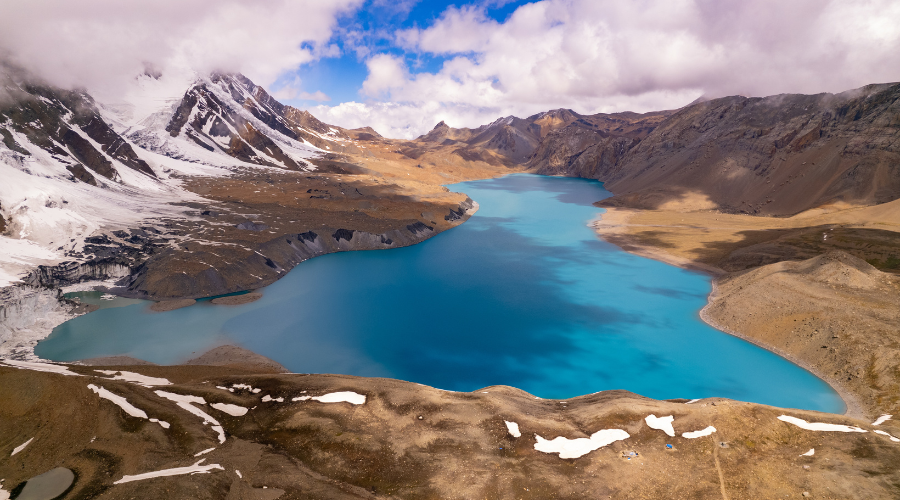
Insurance
It is important to purchase travel insurance for your trek in Nepal to protect against any unforeseen circumstances, such as medical emergencies, trip cancellations, or lost or stolen belongings. When looking for travel insurance, you should consider what type of coverage you need based on your specific needs and the activities you will be participating in during your trek.
Some things to consider when purchasing travel insurance for your trek in Nepal include:
Medical coverage
Make sure you have adequate medical coverage for any injuries or illnesses that may occur during your trek. This is especially important if you are planning to participate in high-altitude trekking, as the risk of altitude sickness and other medical emergencies is higher in these areas.
Trip cancellation coverage
If you need to cancel your trek due to unforeseen circumstances, such as a medical emergency or natural disaster, trip cancellation coverage may allow you to recoup some of your costs.Lost or stolen belongings coverage: It's a good idea to have coverage for any valuable items you may bring with you on your trek, such as cameras, electronics, or jewelry.
Emergency evacuation coverage
This type of coverage can be helpful if you need to be evacuated from the trek due to an injury or illness.
Many travel insurance providers offer coverage for treks in Nepal, so it's a good idea to shop around and compare policies to find the one that best meets your needs. It's also a good idea to read the fine print carefully and understand what is and is not covered under the policy. Generally, the insurance will cost you anywhere from $100 to $1000, depending on the type of insurance.
Total Cost
|
Flight Ticket |
Depending on your country |
|---|---|
|
Visa |
15 Days- $30, 30 Days- $50, 90 Days- $125 |
|
Gear |
Around $500 (If you don't own the gear) $100 (if rent) |
|
Permits |
ACA Permit- $25, TIMS Permit- $17 |
|
Food and water |
Around $20 to $50 a day depending on your food choice |
|
Accommodation |
Around $6 to $10 per day |
|
Transportation |
$100 to $175 (Public) |
|
Flight Ticket inside Nepal |
$100 to $1000, depending on Travelling Season |
|
Insurance |
$100 to $1000 depending on the type of insurance |
|
Guide |
$20 to $25 per day |
|
Porter |
$15 to $20 per day |
Hence, the total cost of trekking in the Tilicho Lake trek can be around $800-$1500 per person.
Best Time To Trek The Tilicho Lake
Trekking Tilicho all year round is possible, but some months the weather can be bad, or the trek might become hard, and some months it can be pretty crowded. So, if we were to consider all these things, the months of March to May or September to November are the best times to trek the Tilicho lake.
Challenges and Risks of the Tilicho Lake Trek
Even though the Tilicho Lake Trek has been gaining popularity, it's still a relatively challenging and remote trek. As such, there are a few things you should be aware of before undertaking the journey.
First of all, while the trail has been cleared and is well-marked, some sections are still steep and rocky. And, since you'll be trekking at a high altitude, you can expect cold weather and potentially hazardous conditions, even in the summer months.
Secondly, since Tilicho Lake is off the beaten path, there are limited options for accommodation and food. You'll need to prepare to rough it and bring your camping gear and supplies.
Finally, while the views from Tilicho Lake are breathtaking, it's important to remember that this is a natural environment. Be sure to pack out all your trash and follow Leave No Trace principles to help keep this special place beautiful for future generations.
Tips and Strategies for a Successful Tilicho Lake Trek
Here are a few tips and strategies to help make your Tilicho Lake trek a successful one:
- First, start your trek well-rested and with plenty of energy. This trek is not for the faint of heart, and you'll need all the stamina you can muster.
- Second, take your time. There's no need to rush; enjoying the scenery is half the fun.
- Third, come prepared. Make sure you have all the necessary gear, including proper clothing and footwear, a map, and enough food and water to last you the entire journey.
- Fourth, be aware of your surroundings at all times. Tilicho Lake is a beautiful but dangerous place, and it's essential to stay safe.
- Finally, have fun! This is supposed to be an adventure, after all. Embrace everything that Tilicho Lake offers, and you will surely have an unforgettable experience.
All in all, the Tilicho Lake trek is an amazing experience that will leave you with memories to last a lifetime. The region's natural beauty is awe-inspiring, and the opportunity to see such an unspoiled part of the world is a rare privilege. If you're looking for an adventure that will take you off the beaten path, this trek is definitely for you.
If you're dreaming of an unforgettable adventure to the majestic Tilicho Lake, let Swotah Travel turn that dream into reality. With us, your journey to one of the world's highest lakes will be meticulously planned, ensuring every moment is as breathtaking as the destination itself. From the rugged trails to the serene beauty of Tilicho Lake, we'll guide you every step of the way, making your trek not just a hike but an experience of a lifetime. Let's embark on this remarkable journey together and create memories that will last forever.
NEWSLETTER SIGNUP
Sign up to receive our trip ideas and travel offers!
Get updates and Exclusive Offers up to 20% Discount
